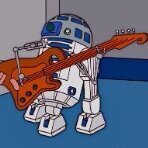Multiscale: A great development or a solution to a problem that doesn't exist?
Multiscale: A great innovation or a solution to a problem that doesn't exist?
56 members have voted
-
1. Multiscale: A great innovation or a solution to a problem that doesn't exist?
-
Yes: Multiscale is great, get with the times and stop using 60 year old technology.28
-
No: Multiscale is a marketing tool that solves a problem that doesn't exist so you'll buy new Basses.28
-
-
Recently Browsing 0 members
- No registered users viewing this page.



Recommended Posts
Join the conversation
You can post now and register later. If you have an account, sign in now to post with your account.